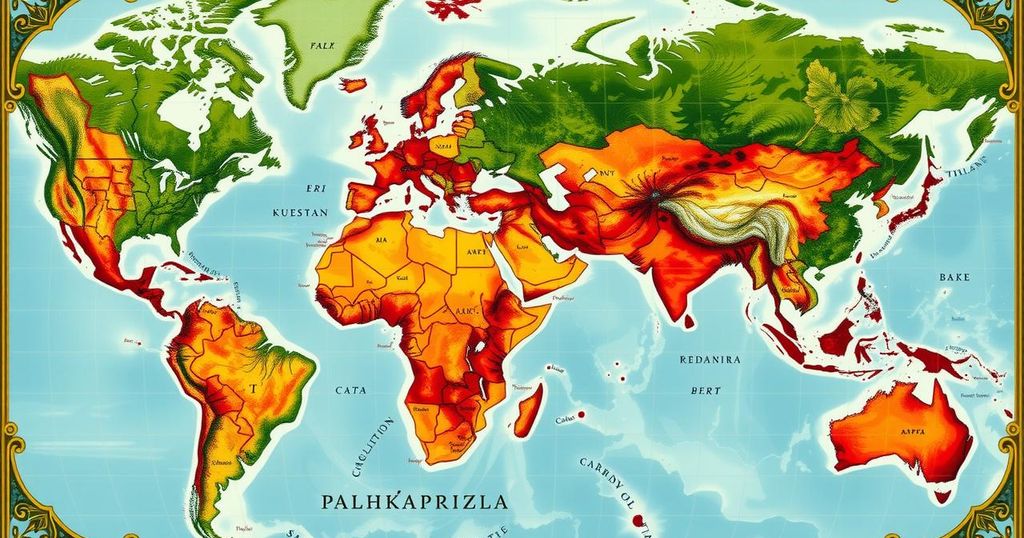Recent armed clashes in Syria resulted in over 1,000 fatalities, mainly civilians from the Alawite minority, amidst rising sectarian violence. The Central African Republic faces war crimes against Muslim communities, while the Philippines sees former President Duterte arrested for crimes against humanity linked to his drug war. Urgent action is required for accountability and protection of vulnerable populations in all regions.
Armed clashes in northwest Syria, specifically in Latakia, Hama, and Tartus governorates, occurred between 6-9 March as individuals loyal to former President Bashar al-Assad ambushed transitional security forces. Over 1,000 individuals, including many civilians predominantly from the targeted Alawite minority, were killed. The UN High Commissioner for Human Rights, Volker Türk, expressed grave concern regarding reports of sectarian summary executions and urged immediate protective measures by caretaker authorities.
The Syrian Network for Human Rights (SNHR) revealed that pro-Assad groups had extrajudicially killed 383 individuals while transitional government forces executed 420 others. As a consequence, thousands of Alawites fled to Lebanon. Interim President Ahmed Al-Sharaa has established an independent committee to investigate these violations, promising accountability and a second committee focused on facilitating civil peace.
Despite a push for a political transition since December 2024, ongoing hostilities have complicated efforts toward national unity. The Kurdish-led Syrian Democratic Forces announced a merger with state institutions, potentially fostering a nationwide ceasefire. Authorities must take urgent action to denounce violence, ensure accountability, and broaden the scope of investigations into recent atrocities.
In the Central African Republic (CAR), a UN report highlighted war crimes committed by armed groups targeting Muslim communities and Sudanese refugees. These groups, including the Wagner Ti Azandé (WTA), have executed civilians along ethnic lines and committed acts of sexual violence. The report outlines significant risks for continued violence and calls for immediate protective measures for vulnerable populations.
The government’s response includes arrests of WTA members and plans for a tribunal. However, further action is necessary to ensure community safety. Cooperation between the UN peacekeeping mission and local forces is vital, alongside efforts to revive peacebuilding initiatives to diminish inter-communal tensions in Mbomou.
In the Philippines, former President Rodrigo Duterte was arrested following an International Criminal Court (ICC) warrant for crimes related to his controversial drug war. Despite the country withdrawing from the Rome Statute in 2019, the ICC retains jurisdiction for crimes committed during membership. Thousands of suspected drug offenders have reportedly been killed under his administration without accountability.
Duterte’s administration faced serious human rights criticisms, with numerous extrajudicial killings alleged. His arrest represents a milestone in the quest for justice for victims of the war on drugs, and it is suggested that the Philippines rejoin the Rome Statute. As noted by Savita Pawnday of the Global Centre for the Responsibility to Protect, Duterte’s arrest exemplifies a positive stride towards international justice and reinforcing adherence to international law.
The recent situations in Syria, the Central African Republic, and the Philippines highlight grave human rights concerns and the urgent need for accountability. In Syria, excessive violence and targeted killings have necessitated independent investigations to ensure justice. The CAR’s ethnic violence underscores the risks of recurring atrocities without effective intervention, while Duterte’s arrest signals a crucial step toward justice in the Philippines. There is a pressing need for international cooperation and engagement to address these humanitarian crises effectively.
Original Source: www.globalr2p.org




